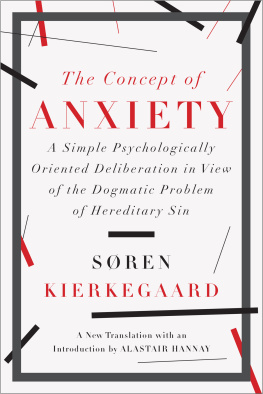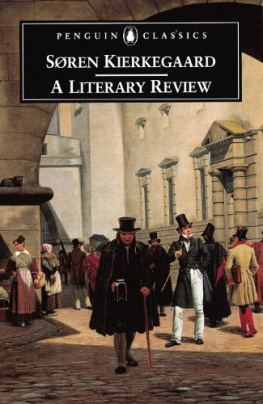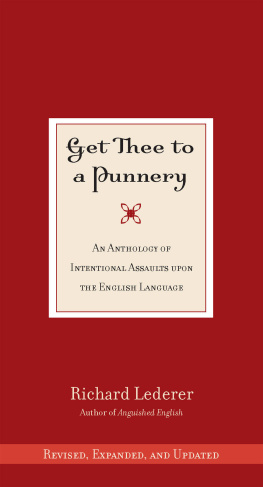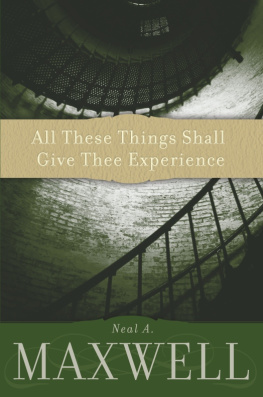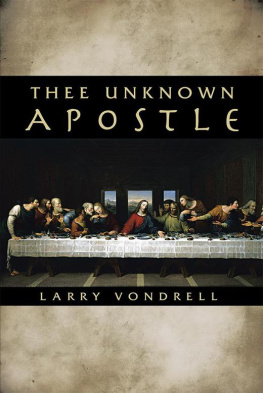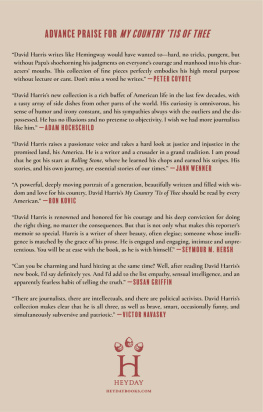Søren Kierkegaard - Purity of Heart is to Will One Thing
Here you can read online Søren Kierkegaard - Purity of Heart is to Will One Thing full text of the book (entire story) in english for free. Download pdf and epub, get meaning, cover and reviews about this ebook. year: 2013, publisher: Start Publishing LLC, genre: Science. Description of the work, (preface) as well as reviews are available. Best literature library LitArk.com created for fans of good reading and offers a wide selection of genres:
Romance novel
Science fiction
Adventure
Detective
Science
History
Home and family
Prose
Art
Politics
Computer
Non-fiction
Religion
Business
Children
Humor
Choose a favorite category and find really read worthwhile books. Enjoy immersion in the world of imagination, feel the emotions of the characters or learn something new for yourself, make an fascinating discovery.
- Book:Purity of Heart is to Will One Thing
- Author:
- Publisher:Start Publishing LLC
- Genre:
- Year:2013
- Rating:5 / 5
- Favourites:Add to favourites
- Your mark:
- 100
- 1
- 2
- 3
- 4
- 5
Purity of Heart is to Will One Thing: summary, description and annotation
We offer to read an annotation, description, summary or preface (depends on what the author of the book "Purity of Heart is to Will One Thing" wrote himself). If you haven't found the necessary information about the book — write in the comments, we will try to find it.
Purity of Heart is to Will One Thing — read online for free the complete book (whole text) full work
Below is the text of the book, divided by pages. System saving the place of the last page read, allows you to conveniently read the book "Purity of Heart is to Will One Thing" online for free, without having to search again every time where you left off. Put a bookmark, and you can go to the page where you finished reading at any time.
Font size:
Interval:
Bookmark:
PURITY OF HEART
Is to Will One Thing
SREN KIERKEGAARD

To
T HAT S OLITARY I NDIVIDUAL
this little work is dedicated.
Contents
A LTHOUGH THIS little book (it can be called an occasional address, yet without having the occasion which produces the speaker and gives him authority, or the occasion which produces the reader and makes him eager to learn) is like a fantasy, like a dream by day as it confronts the relationships of actuality: yet it is not without assurance and not without hope of accomplishing its object. It is in search of that solitary individual, to whom it wholly abandons itself, by whom it wishes to be received as if it had arisen within his own heart; that solitary individual whom with joy and gratitude I call my reader; that solitary individual who reads willingly and slowly, who reads over and over again, and who reads aloudfor his own sake. If it finds him, then in the distance of the separation the understanding is perfect, if he retains for himself both the distance and the understanding in the inwardness of appropriation.
When a woman makes an altar cloth, so far as she is able, she makes every flower as lovely as the graceful flowers of the field, as far as she is able, every star as sparkling as the glistening stars of the night. She withholds nothing, but uses the most precious things she possesses. She sells off every other claim upon her life that she may purchase the most uninterrupted and favorable time of the day and night for her one and only, for her beloved work. But when the cloth is finished and put to its sacred use: then she is deeply distressed if someone should make the mistake of looking at her art, instead of at the meaning of the cloth; or make the mistake of looking at a defect, instead of at the meaning of the cloth. For she could not work the sacred meaning into the cloth itself, nor could she sew it on the cloth as though it were one more ornament. This meaning really lies in the beholder and in the beholders understanding, if he, in the endless distance of the separation, above himself and above his own self, has completely forgotten the needlewoman and what was hers to do. It was allowable, it was proper, it was duty, it was a precious duty, it was the highest happiness of all for the needlewoman to do everything in order to accomplish what was hers to do; but it was a trespass against God, an insulting misunderstanding of the poor needlewoman, when someone looked wrongly and saw what was only there, not to attract attention to itself, but rather so that its omission would not distract by drawing attention to itself.
S.K.
F ATHER IN HEAVEN ! What is a man without Thee! What is all that he knows, vast accumulation though it be, but a chipped fragment if he does not know Thee! What is all his striving, could it even encompass a world, but a half-finished work if he does not know Thee: Thee the One, who art one thing and who art all! So may Thou give to the intellect, wisdom to comprehend that one thing; to the heart, sincerity to receive this understanding; to the will, purity that wills only one thing. In prosperity may Thou grant perseverance to will one thing; amid distractions, collectedness to will one thing; in suffering, patience to will one thing. Oh, Thou that giveth both the beginning and the completion, may Thou early, at the dawn of day, give to the young man the resolution to will one thing. As the day wanes, may Thou give to the old man a renewed remembrance of his first resolution, that the first may be like the last, the last like the first, in possession of a life that has willed only one thing. Alas, but this has indeed not come to pass. Something has come in between. The separation of sin lies in between. Each day, and day after day something is being placed in between: delay, blockage, interruption, delusion, corruption. So in this time of repentance may Thou give the courage once again to will one thing. True, it is an interruption of our ordinary tasks; we do lay down our work as though it were a day of rest, when the penitent (and it is only in a time of repentance that the heavy-laden worker may be quiet in the confession of sin) is alone before Thee in self-accusation. This is indeed an interruption. But it is an interruption that searches back into its very beginnings that it might bind up anew that which sin has separated, that in its grief it might atone for lost time, that in its anxiety it might bring to completion that which lies before it. Oh, Thou that givest both the beginning and the completion, give Thou victory in the day of need so that what neither a mans burning wish nor his determined resolution may attain to, may be granted unto him in the sorrowing of repentance: to will only one thing.
To everything there is a season, says Solomon. And in these words he voices the experience of the past and of that which lies behind us. For when an old man relives his life, he lives it only by dwelling upon his memories; and when wisdom in an old man has outgrown the immediate impressions of life, the past viewed from the quiet of memory is something different from the present in all its bustle. The time of work and of strain, of merrymaking and of dancing is over. Life requires nothing more of the old man and he claims nothing more of it. By being present, one thing is no nearer to him than another. Expectation, decision, repentance in regard to a thing do not affect his judgment. By being a part of the past, these distinctions all become meaningless, for that which is completely past has no present to which it may attach itself. Oh, the desolation of old age, if to be an old man means this: means that at any given moment a living person could look at life as if he himself did not exist, as if life were merely a past event that held no more present tasks for him as a living person, as if he, as a living person, and life were cut off from each other within life, so that life was past and gone, and he had become a stranger to it. Oh, tragic wisdom, if it were of everything human that Solomon spoke, and if the speech must ever end in the same manner, insisting that everything has its time, in the well-known words: What profit hath he that worketh in that wherein he laboureth (Ecclesiastes 3:9)? Perhaps the meaning would have been clearer if Solomon had said, There was a time for all, all had its time, in order to show that, as an old man, he is speaking of the past and that in fact he is not speaking to someone but is talking to himself. For the person who talks about human life, which changes with the years, must be careful to state his own age to his listeners. And that wisdom which is related to such a changeable and temporal element in a man must, as with every frailty, be treated with caution in order that it shall not work harm.
Only the Eternal is always appropriate and always present, is always true. Only the Eternal applies to each human being, whatever his age may be. The changeable exists, and when its time has passed it is changed. Therefore any statement about it is subject to change. That which may be wisdom when spoken by an old man about past events may be folly in the mouth of a youth or of a grown man when spoken of the present. The youth would not be able to understand it and the grown man would not want to understand it. Even one who is a little advanced in age may fully agree with Solomon in saying, There is a time to dance from sheer joy. And yet how can he agree with him? For his dancing time is past, and therefore he speaks of it as of something past. And it does not matter whether, in that day when both youth and the longing to dance were his, he grieved at its being denied him, or whether in joyous abandon he yielded to the invitation to dance: one who is a little advanced in age will still say quietly, There is a time to dance. But for the youth, to be allowed to hurry off to the dance and to sit shut in at home are two such different things that it does not occur to him to consider them on the same level and to say, There is a time for the one and a time for the other. A man is changed in the course of the years, and each time some portion of life lies behind him he tends to talk of its varied content as if it were all on the same level. But it does not follow from this that he has become any wiser. For by this, one has only said that he has changed. Perhaps even now there is something that makes him restless in the same way that the dance disturbs the youth, something that absorbs his attention in the same way that a toy absorbs a child. It is in this manner that a man changes, over the years. Old age is the final change. The old man speaks in the same vein of it all, of all the changeable that is now past.
Next pageFont size:
Interval:
Bookmark:
Similar books «Purity of Heart is to Will One Thing»
Look at similar books to Purity of Heart is to Will One Thing. We have selected literature similar in name and meaning in the hope of providing readers with more options to find new, interesting, not yet read works.
Discussion, reviews of the book Purity of Heart is to Will One Thing and just readers' own opinions. Leave your comments, write what you think about the work, its meaning or the main characters. Specify what exactly you liked and what you didn't like, and why you think so.




